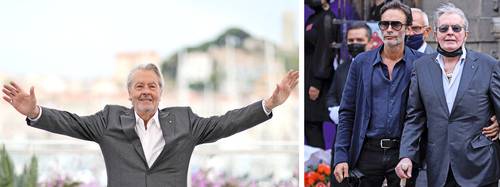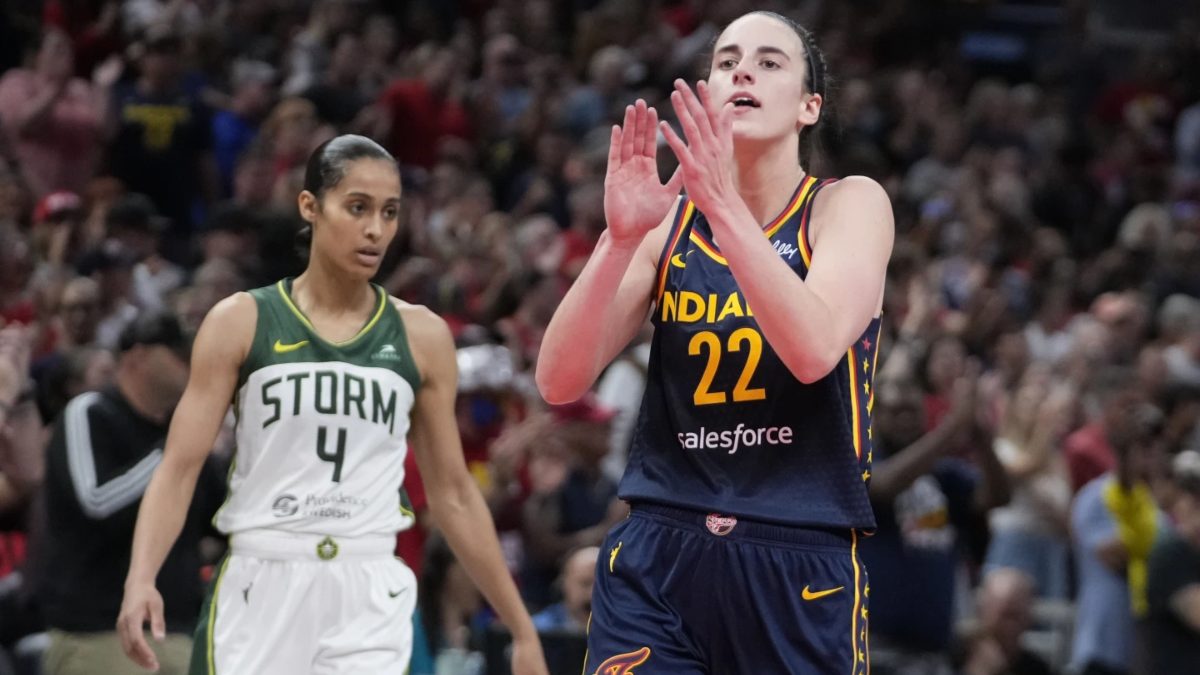▲ On the left, Delon at the Cannes Film Festival in 2019, when he received a Palme d’Or; on the right, with his son Anthony in 2021. Photo Afp
Juan Jose Olivares
The newspaper La Jornada
Monday, August 19, 2024, p. 7
The death of Alain Delon at the age of 88 leaves an abysmal void that nothing and no one can fill, said French actress Brigitte Bardot in a message to the AFP news agency.
He represented the best of French prestige cinema and was an ambassador of elegance, talent and beauty, wrote Bardot, 81. In a letter to her friend on the occasion of his 80th birthday, she said: You are the living symbol of the masterpiece that France has produced during this century that we have passed through together. You carry the beauty, the courage, the elegance and the power that made you the immense international star never equalled or replaced.
Alain Fabien Maurice Marcel Delon Arnold, his full name, was considered the male Brigitte Bardot, and was chosen as the heartthrob who starred in classics such as In full sun, The samurai y Rocco and his brothers.
In recent years, he had been in poor health and in 2019 he suffered a stroke.
Critic Roger Ebert called him the tough-guy pretty boy of French movies, an actor so impossibly handsome that his best strategy for dealing with his looks was to keep a poker face. For scholar David Thomson, he was an enigmatic angel of almost feminine French cinema. Yet he is so serious and immaculate that he could be considered either lethal or powerful; he also said that Delon is not so much a good actor as a striking presence.
The actor himself declared: I like to be loved as I love myself. His last days were marked by problems between family members and controversies about his career and women.
Delon was either a handsome prince or an indomitable gangster who acted for several of the best directors of the seventh art. Producer, director, businessman and collector, he was an arrogant seducer who cultivated in real life the image he radiated on the screen: a handsome bad boy. He was the ideal of many women and the companion of beauties such as Romy Schneider, Claudia Cardinale, Simone Signoret and Mireille Darc.
It was in them, in the eyes of my first wife, Nathalie, and in those of Romy, Mireille and the mother of my children, Rosalie van Breemen, that I found the motivation to be what I have become, he said. The only thing I needed was to play the role of Christ. It’s a bit late now, according to statements collected by AFP at the end of his career, which included some 90 films under the direction of Jean-Pierre Melville, Luchino Visconti, René Clément and Jean-Luc Godard, among others.
Delon was born in 1935 in the Paris suburb of Sceaux. His mother, Edith, worked in a pharmacy and his father, Fabien, ran a local cinema. At the age of four, he was sent to live with a foster family and then to a Catholic boarding school after his parents divorced. He left school at 14 after being expelled from multiple schools and worked in his stepfather’s butcher shop. He spent a brief stint in the Navy, which sent him to France’s Vietnam War. He was dishonorably discharged in 1956 for stealing and crashing a jeep.
He began his acting career when he was discovered by Hollywood producer David O. Selznick at the 1956 Cannes Film Festival. Selznick offered him a seven-year contract if he improved his English, but the star decided on a thriller by Yves Allégret: When the woman gets involved (1957). About his first role, Delon told Vanity Fair: “I didn’t know how to do anything. Yves Allégret looked at me and said: ‘Listen to me carefully, Alain: speak as you speak to me. You seem to be looking at me. Listen as you listen to me. Don’t act, live. ’ That changed everything.”
After his debut, he was cast in the lead role of Be beautiful and shut up, from 1958, which features Alain Delon and Jean Paul Belmondo in their first roles as criminals. The same year he was cast alongside Austrian actress Romy Schneider in the drama Christine (1958) by Pierre Gaspard-Huit.
The couple began a romance and became engaged the following year. They remained together until 1963 and starred in two more films after their separation: The pool, by Jacques Deray, and The assassination of Trotsky, de Joseph Losey.
By 1960, Delon had gained international recognition for his leading role in In full sun (Plain soule, directed by Clément), French adaptation of the book by Patricia Highsmith The Talented Mr RipleyThat same year he received praise for his performance in Rocco and his brothers, by Luchino Visconti. He then acted in the Sicilian epic The Leopard and the drama about stockbrokers The Eclipse, by Michelangelo Antonioni.
Despite her continued success in Europe, she only landed small roles in English-language films. She never managed to become a star in Hollywood. She moved there in 1964, signing contracts with MGM and Columbia, where she made a total of six films, but she failed to break through and left in 1967 to star in crime films. The Sicilian Clan (1969) and Borsalino (1970), both box office hits in France.
He continued to work steadily throughout the 1970s and won the César for best film in 1977 for the Losey drama Mr. Klein. He tried his hand at producing several films before making his directorial debut in 1981 with For the Skin of a Cop. His career slowed down and in 1997 he announced his retirement after his performance in the neo black New Wave, by Jean Luc Godard. He returned to the screens in 2008 to play Julius Caesar in the comic Asterix at the Olympic Games.
Borsalino and the mafia
In 1969 he was implicated in a drug scandal and admitted to having been involved with the Marseille mafia, whose past he mythologized, along with Belmondo, in the successful historical film Borsalino (1970).
He was married to Nathalie Delon from 1964 to 1968 and they welcomed their son Anthony in 1964. Delon began dating actress Borsalino Mireille Darc in 1968 and they separated in 1982. Two years earlier, The Velvet Underground singer Nico claimed that she had given birth to Delon’s son, which he denied. In 1987 he began an affair with model Rosalie van Breeman, from whom he separated in 2002 and with whom he had two children, Anouchka and Alain-Fabien.
He has appeared in only a few projects since the 1990s. In 1995 he received an honorary Golden Bear at the Berlinale, and his last major public appearance was in 2019 at the Cannes film festival, where he won an honorary Palme d’Or. The award was marked by controversy, with a petition gathering more than 25,000 signatures over his racism, homophobia and misogyny. In this regard, with teary eyes, he told the audience during the ceremony: You don’t have to agree with me, but if there is one thing in this world that I am sure of, that I am really proud of, it is my career.
That same year he suffered a stroke and has since been at the centre of a family feud. In 2021, he was seen at the funeral of his friend and star actor Jean-Paul Belmondo.
Delon has been in the news more recently for his controversial work. On one occasion, police confiscated 72 unlicensed firearms and more than 3,000 rounds of ammunition from his home in Douchy-Montcorbon, nearly 135 kilometres from Paris, where they found a shooting range.
He was involved in an unpleasant legal battle in which his right-hand woman, Hiromi Rollin, was accused by his three children of being responsible for the actor’s deterioration and isolation. They first teamed up to protect their father, but then turned on each other when they lost the battle that had initially united them.
Anthony, Anouchka and Alain-Fabien had filed a lawsuit against Rollin in July, and Delon joined in the action, but last January, Anthony lashed out at his sister Anouchka, accusing her of lying, manipulating and endangering their father’s life.
Leading the tributes, French President Emmanuel Macron said Delon had played legendary roles and made the world dream, cementing him as a national icon. Melancholic, popular, reserved, he was more than a star: he was a French monument, he said on social media.


